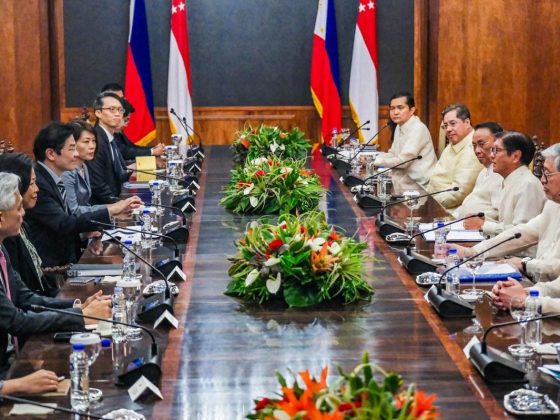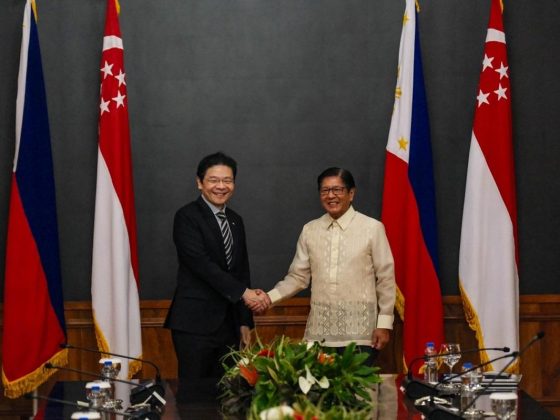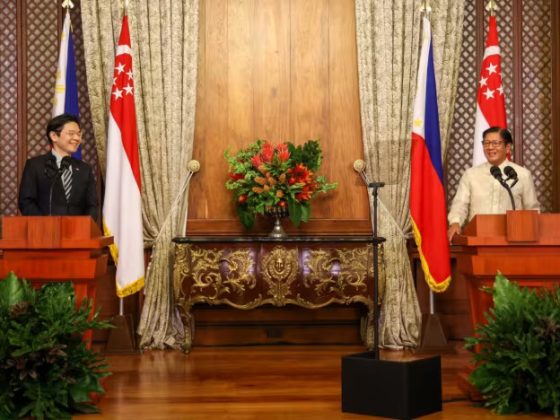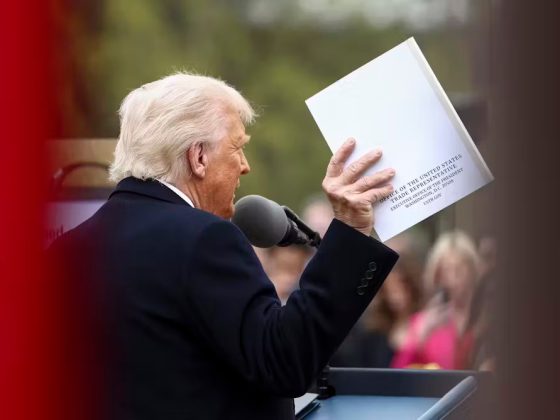- The ASEAN Digital Economy Framework Agreement (DEFA) is a new strategic roadmap for the region to address the complexities and opportunities of the digital economy.
- The world’s first region-wide digital economy agreement, DEFA will harmonize digital trade rules and unlock the potential of ASEAN’s digital economy.
- With ASEAN’s digital economy set to double to $2 trillion by 2030, DEFA will be an engine for dynamic growth.
Twenty-first-century technologies, including artificial intelligence, blockchain and cloud computing, are reshaping the global economy. This is bringing about both unprecedented opportunities and complex challenges. The digital economy is booming, with virtual platforms becoming the primary engines of innovation, commerce and human connection.
Yet this transformation unfolds unevenly, with fragmented regulatory approaches, widening digital divides, and growing concerns about data sovereignty and cybersecurity. Against this backdrop of rapid change and strategic competition, nations and regional groups like the Association of Southeast Asian Nations (ASEAN) face a critical choice: react defensively to digital disruption or proactively shape it.
ASEAN has taken a firm decision. In a world increasingly defined by digital transformation, it is stepping forward deliberately, ambitiously and in a united fashion. The ASEAN Digital Economy Framework Agreement (DEFA), currently under negotiation, represents a pivotal moment for our region. More than an economic pact, DEFA is a strategic blueprint for how our nearly 680 million people can access a digital future that is open, secure and inclusive.
Unlike digital and e-commerce provisions embedded in broader trade agreements such as the recent EU-Singapore Digital Trade Agreement, DEFA stands out as a dedicated and comprehensive framework to address the complexities and opportunities of the digital economy.
It will be the world’s first region-wide, binding agreement focused exclusively on digital economy governance. While tailored to ASEAN’s unique context, DEFA maintains global relevance by balancing ambition with flexibility, ensuring that all member states – regardless of their digital development stages – can share in its benefits.
From fragmentation to integration
At its core, DEFA promotes integration. Today, ASEAN’s digital landscape is diverse. Some member states lead in digital finance and infrastructure while others are establishing foundational systems. Without common digital rules and standards, this diversity risks creating fragmentation.
DEFA transforms this challenge into an opportunity for greater resilience by harmonizing digital trade rules, enabling trusted cross-border data flows, and establishing a coherent regulatory framework for paperless trading, e-commerce, cybersecurity, digital identity and digital payments. This comprehensive approach reduces regulatory divergence, lowers transaction costs and creates a seamless, interoperable digital ecosystem benefiting ASEAN and its partners.
ASEAN is ideally positioned for this transformation. With a mobile penetration rate of 136% – among the world’s highest – our region is hyperconnected and digitally vibrant. Yet connectivity alone is insufficient. This high adoption rate underscores the need for robust digital infrastructure, interoperable systems and inclusive policies to support the next growth phase. DEFA is the catalyst to unlock this.
Empowering people, advancing sustainability
DEFA has been developed with inclusion at its core. It was built through extensive consultation with diverse stakeholders, including governments, business leaders, micro, small and medium enterprises (MSMEs) and academics.
This participatory approach ensures DEFA reflects not only policy-makers’ priorities, but also the experiences and aspirations of businesses and consumers who drive our economic growth. The result is a people-centred agreement that empowers MSMEs, which comprise 97% of ASEAN businesses and provide 85% of employment. Through streamlined digital regulations and improved e-commerce access, DEFA enables MSMEs to expand across borders, integrate into regional value chains and compete globally.
Investor confidence in our region already exceeds global trends. In 2023, 71% of all venture capital deals in ASEAN were digital economy-related – 11% higher than the global average. Equally impressive is the nearly fivefold increase in average annual announced investments in communication, data processing, and hosting services – up from $777 million in 2015 to $4.4 billion in 2024.
DEFA’s implementation will see this upward trajectory accelerate. It will further unlock the region’s innovation potential and cement ASEAN’s position as a premier digital investment destination.
DEFA creates new pathways for women entrepreneurs, rural innovators and youth-led start-ups. With provisions supporting skills development, talent mobility and digital literacy, the agreement prepares ASEAN’s workforce for tomorrow’s jobs.
DEFA serves dual purposes as both a digital and sustainability agreement. ASEAN has committed to an ambitious sustainability agenda, with DEFA as a key enabler. Through interoperable digital tools, we can reduce trade’s environmental footprint, enhance supply chain transparency and foster green innovation across sectors. From paperless customs and e-invoicing to smart agriculture and eco-friendly logistics, DEFA establishes the foundation for a digital economy.
A confident voice in the global digital era
As digital interactions expand, protective measures must keep pace. DEFA incorporates high standards in cybersecurity, data governance and consumer protection, providing users with confidence to engage, innovate and conduct cross-border transactions. By including forward-looking cooperation on emerging technologies, DEFA ensures ASEAN remains adaptable and relevant to economic change.
This agreement builds on ASEAN’s broader digital architecture, anchored in the Bandar Seri Begawan Roadmap to Accelerate ASEAN’s Digital Economy Integration and the Consolidated Strategy on the Fourth Industrial Revolution.
DEFA is instrumental to our long-term objectives under the ASEAN Community Vision 2045, including our ambition to become the world’s fourth-largest economy and achieve upper-middle-income status by 2045. With the potential to double ASEAN’s digital economy to $2 trillion by 2030, DEFA is an engine for inclusive, sustainable and future-oriented growth.
DEFA positions ASEAN as a trusted digital partner in an increasingly contested global landscape. It complements ASEAN’s cooperation with key partners – Australia, China, the US, the EU, India, Japan, South Korea and New Zealand – providing a platform for collaboration on digital standards, data flows, cross-border payments and capacity building. For global investors and multilateral institutions, DEFA signals ASEAN’s readiness to lead in shaping the values of the digital age.
Charting ASEAN’s digital future: With courage, unity and purpose
Concluding DEFA requires more than technical precision. It demands political courage, regional solidarity and shared belief that ASEAN’s future must be built on innovation, inclusion and cooperation. Yet history demonstrates ASEAN’s capacity to rise to challenges – from launching the ASEAN Free Trade Area in the early 1990s to delivering the world’s largest trade pact through the Regional Comprehensive Economic Partnership (RCEP).
No doubt, DEFA represents our next bold step forward. It transforms digital disruption into digital empowerment. It ensures our growth is not merely faster, but fairer. And it secures our place as a united, confident voice in the global digital dialogue. The world is watching. The future is digital. And ASEAN is not just ready, we are leading the way.
Source: WEF









